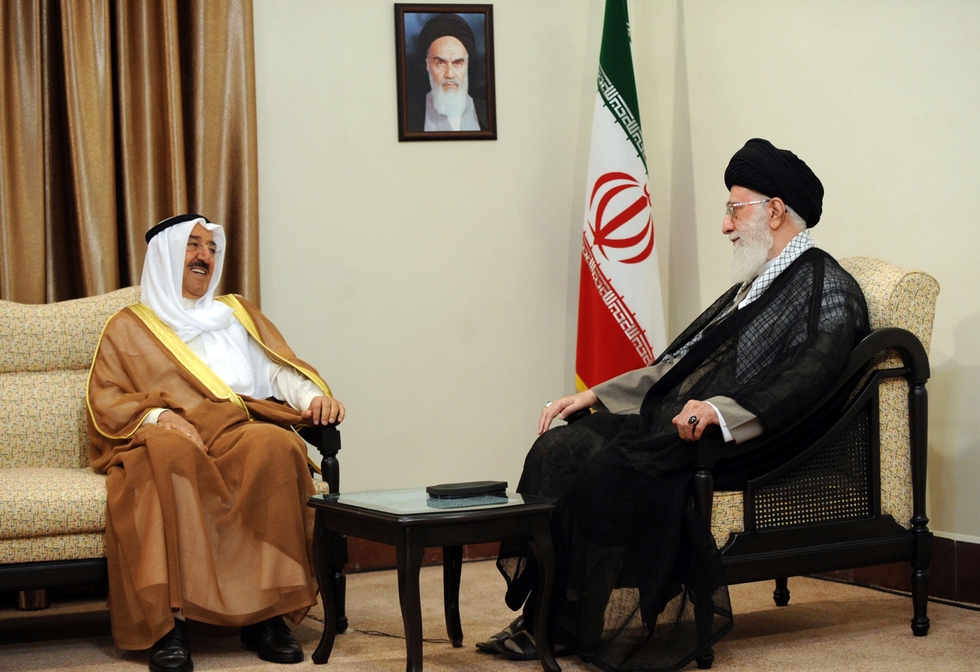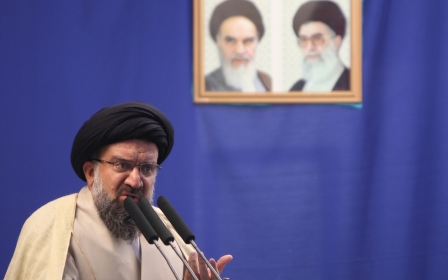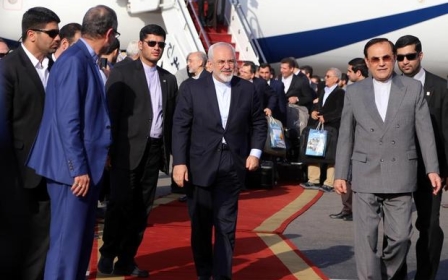Kuwait charges 24 'linked to Iran' with plotting attacks

Kuwait on Tuesday charged 24 people suspected of links to Iran and Lebanese Shia group Hezbollah with plotting attacks against the Gulf state, a statement by the public prosecutor said.
The men were charged with "spying for the Islamic Republic of Iran and Hezbollah to carry out aggressive acts against the State of Kuwait" by smuggling in and assembling explosives, as well as possessing firearms and ammunition, the statement said.
They were also charged with "carrying out acts that would undermine the unity and territorial integrity" of Kuwait, and of possessing eavesdropping devices, it said.
Two other men were also charged in the same case, one with possessing illegal weapons and another with failing to inform authorities about the arms.
One of the suspects is Iranian and the rest are Kuwaiti nationals. Three who remain at large were charged in absentia.
Prosecutors said the suspects were linked with a "terror cell" the interior ministry said it had busted last month while seizing large amounts of weapons, ammunition and explosives.
Officials said at the time that three men had been arrested and confessed to joining an illegal group that local media reported was Hezbollah.
Media had reported that more arrests followed and the prosecutor said 22 of the suspects charged on Tuesday had received explosives and weapon training to "achieve illegal goals".
A number of suspects were accused of being members of Hezbollah which, according to the prosecutor's statement, "aims to demolish the social and economic foundations of the country".
Kuwait has traditionally had better ties with Iran than its fellow Gulf Arab states, but tensions have been rising.
This was not the first Iran-linked espionage ring to be spoken of in Kuwait.
In May 2013, the Supreme Court upheld life terms for two Iranians, a Kuwaiti and a stateless man on charges of forming a ring to spy for Tehran.
The convicts, who worked for the army, were accused of spying for Iran and passing information on Kuwaiti and US military forces in the emirate to the Islamic republic's elite Revolutionary Guards.
Iran dismissed the accusation.
They were also convicted of plotting to blow up key pipelines in the oil-rich state.
The case strained relations between Kuwait and Iran, prompting a tit-for-tat expulsion of diplomats after investigations showed the information was passed to diplomats in Tehran's embassy in Kuwait City.
A decades-old row between the two countries over the disputed offshore Dorra gas field resurfaced last week.
Kuwait summoned the Iranian charge d'affaires to protest against Tehran's apparent offer of investment opportunities in the Dorra field.
Kuwait has also arrested alleged members of the Islamic State group, which said it was behind an attack on a Shia mosque in June that killed 26 people.
The lower court on Tuesday set 15 September as the date when it will issue its verdict on 29 suspects in that case.
New MEE newsletter: Jerusalem Dispatch
Sign up to get the latest insights and analysis on Israel-Palestine, alongside Turkey Unpacked and other MEE newsletters
Middle East Eye delivers independent and unrivalled coverage and analysis of the Middle East, North Africa and beyond. To learn more about republishing this content and the associated fees, please fill out this form. More about MEE can be found here.




